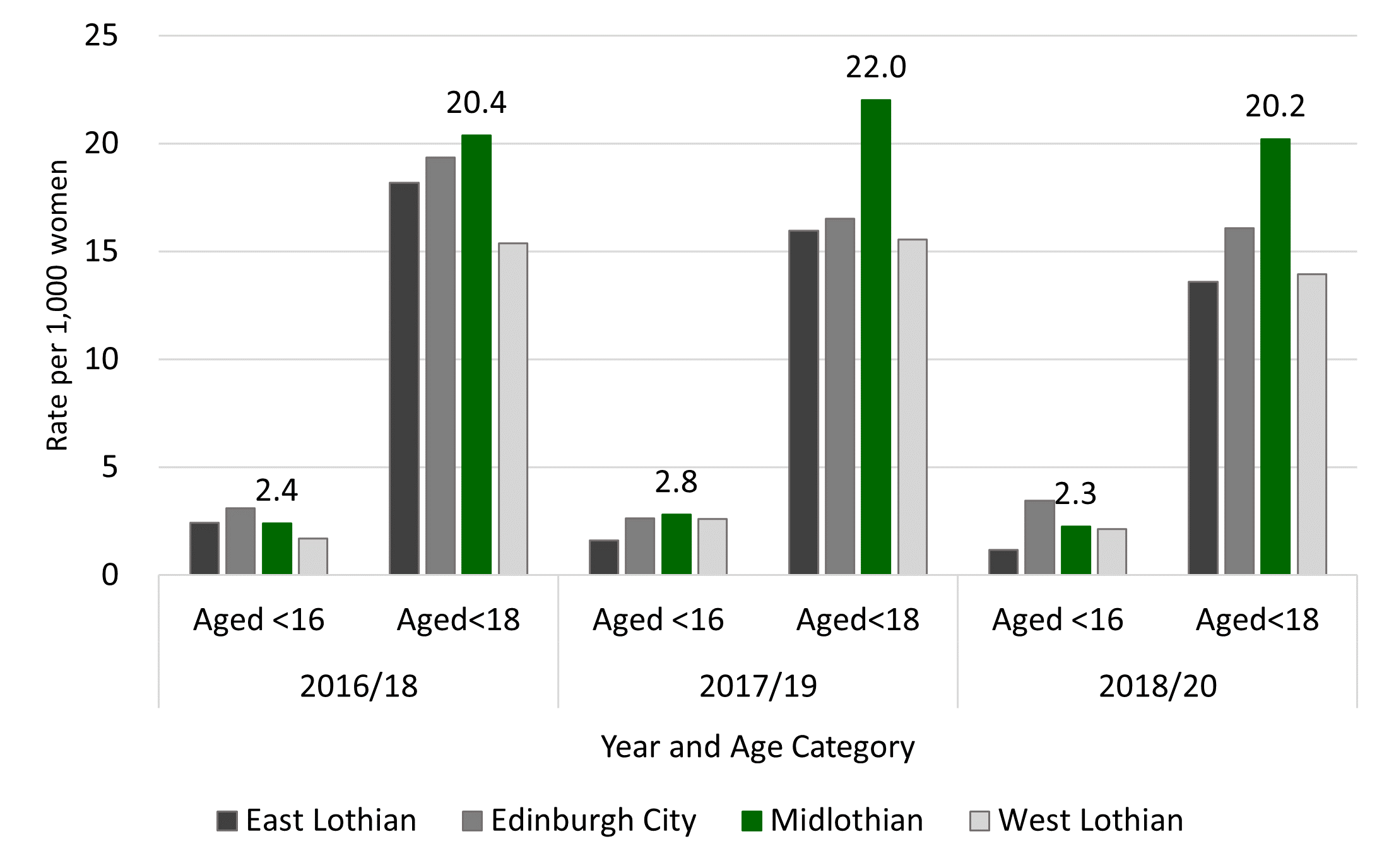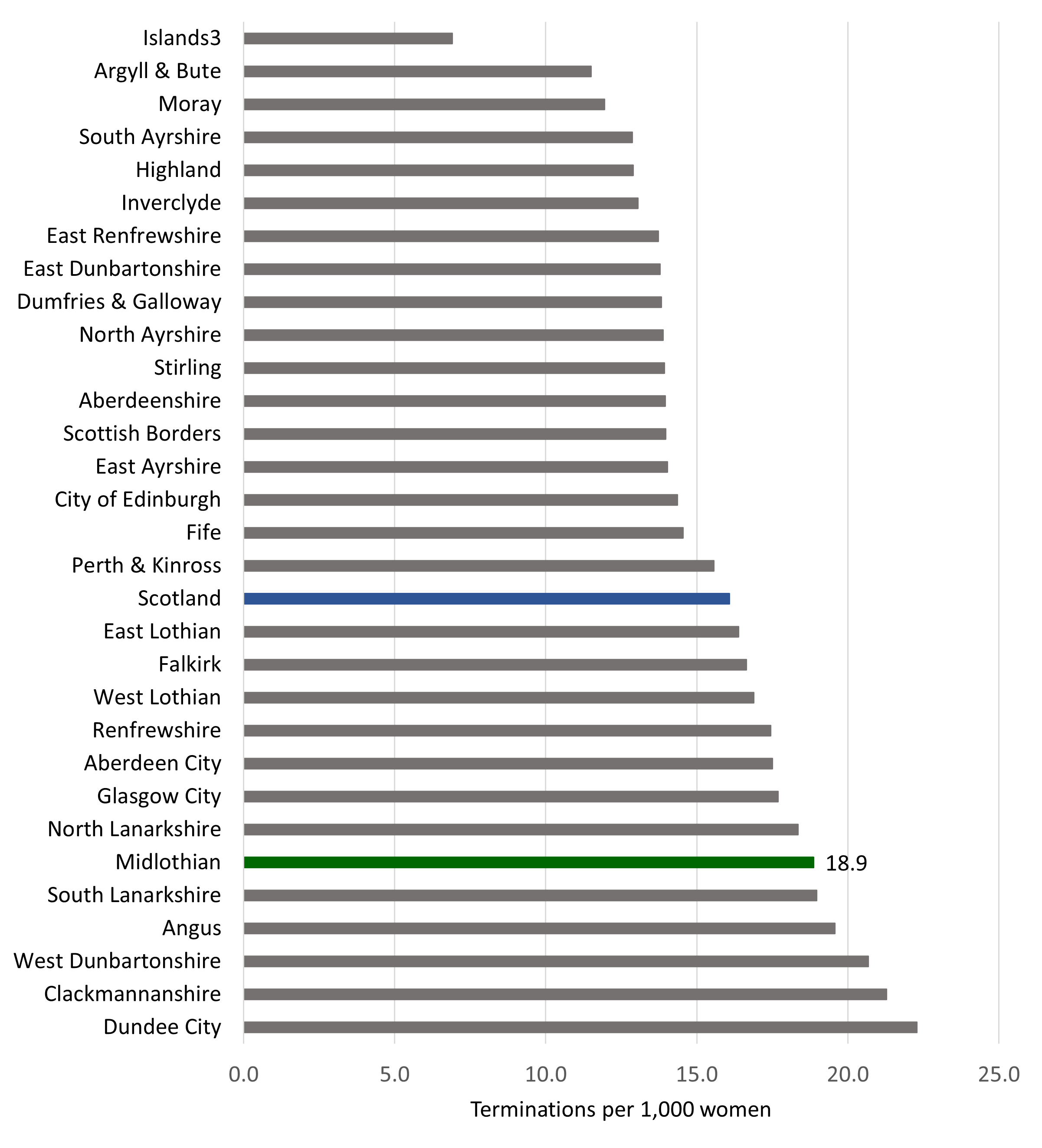Sexual Health & Blood Borne Viruses
Sexual Health
Sexual health is important to people’s overall health and well-being. It impacts on couples and families and on the social and economic development of communities. Inequalities exist with some people experiencing a higher risk of things such as STIs and unintended pregnancies (Public Health Scotland, 2023). People more likely to be affected include:
- people living in deprived areas
- people with learning disabilities
- people involved in commercial sexual exploitation
- people in prison
- looked-after and accommodated children and young people
- lesbian, gay, bisexual and transgender people
Teenage pregnancy is associated with numerous health risks for both the mother and child. Teenage parents are also at greater risk of experiencing social exclusion and financial hardship because of barriers to further education, employment, or training (Baxter et al., 2021). Pregnancy rates for those aged under 20 in Scotland has continued to decline from the most recent peak of 57.7 per 1000 women (2007) to 23.9 per 1000 (2020) and NHS Lothian has mirrored this trend. However, under 18 pregnancies in Midlothian has been persistently higher than the other 3 local authority areas between 2016/18 and 2018/20.
Teenage Pregnancies (rate per 1,000) for Lothian Local Authority (three year combined for <16 And <18)
Data Source: Public Health Scotland

Termination of pregnancy
In Scotland the termination of pregnancy rate increased steadily from 2013 to 2020 with a sharper increase from 2021 to 2022. The rate in Midlothian has consistently been higher than the Scottish rate and has mirrored this upward trend.
Termination of pregnancy rates by Local Authority, 2022 (per 1,000 women aged 18-44)
Data Source: Public Health Scotland

Pregnancy data has not yet been released for 2021 or 2022 so it is not possible to know if there is a higher proportion of terminations among those who had a pregnancy or a higher proportion of pregnancies. High termination rates can be a result of many factors, for example rates are highest in the most deprived areas but other factors such as the accessibility of termination services for women who need them can also contribute.
Sexually Transmitted Infections (STIs)
Sexually transmitted infections (STIs) are infections that are passed from one person to another through sexual contact. Most STIs affect both men and women, but in some cases, they can cause more severe health problems for women, and some can be passed to a baby, either during pregnancy, birth or breastfeeding (Public Health Scotland, 2023).
In Scotland in 2022, there was a 49% increase in gonorrhoea (5,641 diagnoses in total) compared to that observed in 2019. The highest rate was reported in NHS Lothian: 226 per 100,000 population (Public Health Scotland, 2023). Data is not available at a Midlothian level. If left untreated gonorrhoea can lead to reproductive health issues (Public Health Scotland, 2023).
Following the Covid-19 pandemic rates of adult attendances at sexual health clinics have recovered to pre Covid-19 levels, however the rate of young people attending clinics is lower than before the Covid-19 pandemic. This trend is observed both nationally and locally.
Healthy Respect+ is service for young people aged 13 -18 years old run by the Chalmers Sexual Health Centre. The service offers testing and treatment for all STls and all forms of contraception. It is based in Edinburgh. In 2022, 9% (117) of attendances (with postcode data recorded) were Midlothian residents (Healthy Respect+ unpublished data). The highest number of attendances were for people residing in Dalkeith (38), which was almost double the number attendances for people residing in Penicuik (20).
Healthy Respect+ also run a twice weekly sexual health clinic for young people in Dalkeith in partnership with Midlothian Council. In 2022 there were 207 attendances. Most people who attended resided in Central or East Midlothian, very few people travelled from West Midlothian. Snapshot data for August 2023 show 90% of attendees were female. 68% attended regarding an STI and 32% regarding contraception, of which 14% were for long-acting reversible contraception (Healthy Respect+ unpublished data).
There is a similar service for vulnerable population groups (those affected by homelessness, criminal justice, mental health and/or substance misuse issues) in Dalkeith. This provides 4 appointment slots each month and is run in partnership with Chalmers Sexual Health Centre and No.11 with support from Midlothian’s Health Inclusion Team.
GP surgeries provide support and treatment on a variety of sexual health matters. Most practices, 9 practices out of 11, offer at least one form of long-acting reversible contraception. Pharmacies also provide some services, for example emergency contraception and Chalmers Sexual Health Centre also serve the adult Lothian population.
Blood Borne Viruses
Blood-borne viruses are viruses that some people carry in their blood and can be spread from one person to another. There are a variety of viruses of which Hepatitis C and HIV have the most serious long-term implications. For Hepatitis C there is a new treatment which requires eight to twelve weeks of oral therapy, with very few side effects, that leads to sustained viral clearance in most patients. People with HIV are now able to lead near normal lives with appropriate medication.
Hepatitis C
245 people were newly identified as hepatitis C antibody positive in Lothian (during 2018), and 309 Lothian patients started treatment for hepatitis C. The estimated number diagnosed and living in Lothian with chronic HCV is 708 (Public Health Scotland, 2023). The majority of these are likely to have been infected some years ago, but there is evidence of ongoing transmission in Lothian, particularly among people who use drugs.
Since testing became available in the late 1980s there have been 6,058 persons reported as hepatitis C antibody positive in Lothian (to 31 Dec 2018) and it is estimated there 2,470 people living with treated and untreated chronic hepatitis C in Lothian.
The UK Government is signed up to the WHO target to eliminate hepatitis C as a public health problem by 2030. However, the Scottish strategy may seek elimination prior to this date.
HIV
1,673 people live with HIV in Lothian (Dec 2022), up from just over 1,100 in January 2010.
The number of new cases of HIV infection in Lothian has been falling since 2005, 94 and in 2022 there were 18 new diagnoses. However, the prevalence of people with HIV is increasing due to decreased deaths, antiretroviral therapies and new cases being diagnosed.
A highly effective form of HIV prevention, Pre-Exposure Prophylaxis for HIV (PrEP), has been provided in Lothian since July 2017. It is expected that this will reduce incidence of HIV infection among men who have sex with men in Lothian.
There are around 7,622 people living in Lothian with HIV or Hepatitis C infection.
